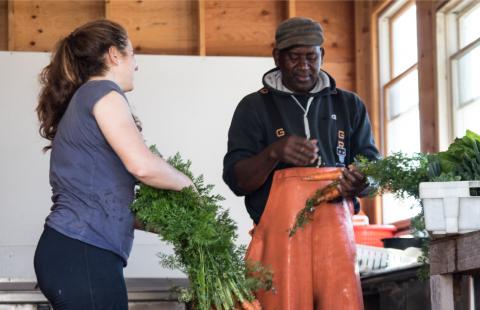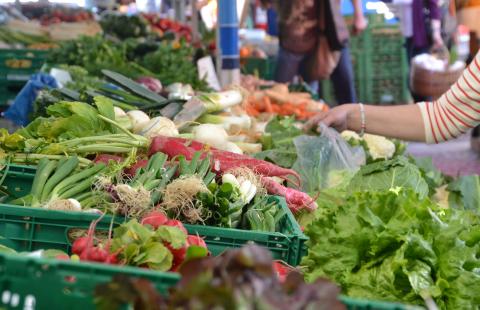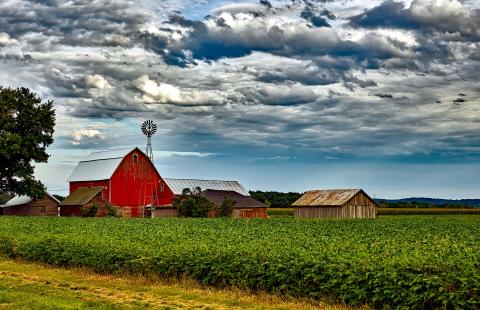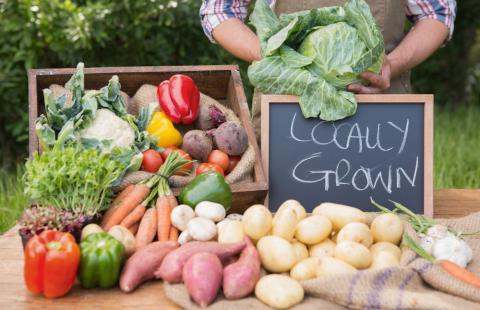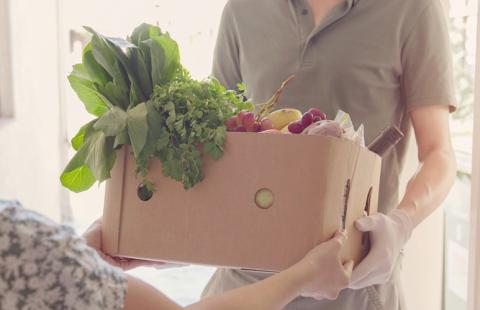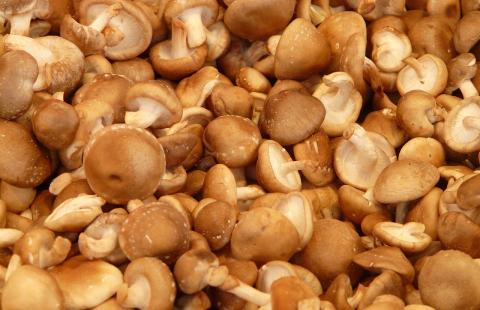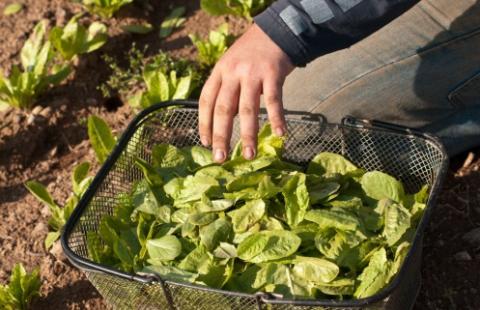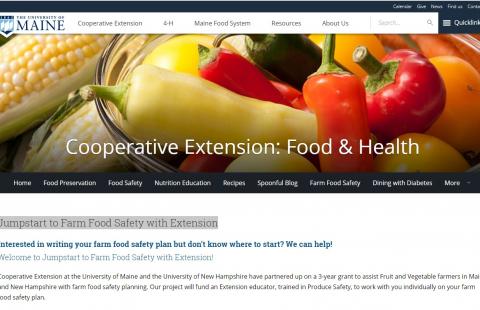A Focus on Safety
We provide workshops, online tools and one-on-one assistance to agricultural producers, food processors and food service professionals working in commercial and institutional settings. We also provide education and one-on-one assistance related to the Food Safety Modernization Act (FSMA).
ASK A FSMA QUESTION OR REQUEST A PROGRAM
Do I need to comply with FSMA?
These three tools are meant to be used together. If you do not receive the same answer from all three tools, please contact a member of the FSMA team.
-
Online Tool - Do I Need to Comply?
-
Video - Am I Covered?
-
Flowchart - Am I affected by the Food Safety Rules?
These three tools are intended to be used together. If you do not receive the same answer from all three tools, please contact a member of the FSMA team.
- Online Tool - Does the Preventive Controls Rule of FSMA Apply to You?
- Flowchart - Am I affected by the Food Safety Rules?
- Video Series - FSMA Preventive Controls Rule Explained
These three tools are intended to be used together. If you do not receive the same answer from all three tools, please contact a member of the FSMA team.
- Online Tool - Does the Preventive Controls Rule apply to your maple operation?
- Flowchart - FSMA for Maple Producers
- Video Series - FSMA Preventive Controls Rule Explained
As a Qualified Exempt farm, what do I need to do?
Being qualified exempt means you have two things you need to do to comply. (Check the FSAM Cut Offs, shown below, to see where you fall.)
- First, you need to label the food you sell with your business name and address. The label can be on the package if the produce is packaged or on a sign at the point of sale if it isn’t packaged, or on the invoice. The deadline for this labeling was January 1, 2020.
- Second, you need to fill out a two-page form with sales totals for the last 3 years and keep it on file at your farm. The NH Department of Agriculture Markets and Food may ask you to see it during visits. The deadline for compliance with this portion of the rule was January 26, 2020, and for the 2021 season you’ll need sales records for 2018, 2019 and 2020. If your business is less than 3 years old, you can use the records you do have.
Not covered farms technically do not need to do anything, but we recommend everyone who is not fully covered fill out the two-page form and keep it on file. This is because in order to take advantage of the “not covered” or “qualified exempt” status you need to be able to prove you qualify for it. This form is the easiest way to do that. If while reviewing your records you find you do not have the data to fill out the form please contact a member of Extension’s Agricultural Business Management Team.
To learn more about this, read the full article. As always, with any FSMA questions, please feel free to contact a member of Extension’s FSMA team or the NH Department of Agriculture Markets and Food.
What are the FSMA Cut Offs?
The final FSMA rules include definitions for sizes of businesses that are determined by sales figure cut offs and types of food being sold. For example, a cheese maker selling less than the cut off of a million dollars of human food per year averaged over three years would be categorized as a very small business under the Preventive Controls Rule. However, the regulation also allows for the cut offs to change over time to reflect inflation. In 2020, for example, that cheesemaker’s cut off for sales from 2018-2020 has gone up to $1,142,427.
To help farms and food businesses keep track of the changing values, the FDA has created a website that lists the updated values as they recognize them.
FDA Website: FSMA Inflation Adjusted Cut Offs
Listen In to Learn More
Articles
Resources
Extension Services & Tools That Help NH Farmers Grow
Newsletters: Choose from our many newsletters for production agriculture
Receive Pest Text Alerts - Text UNHIPM to (866) 645-7010

